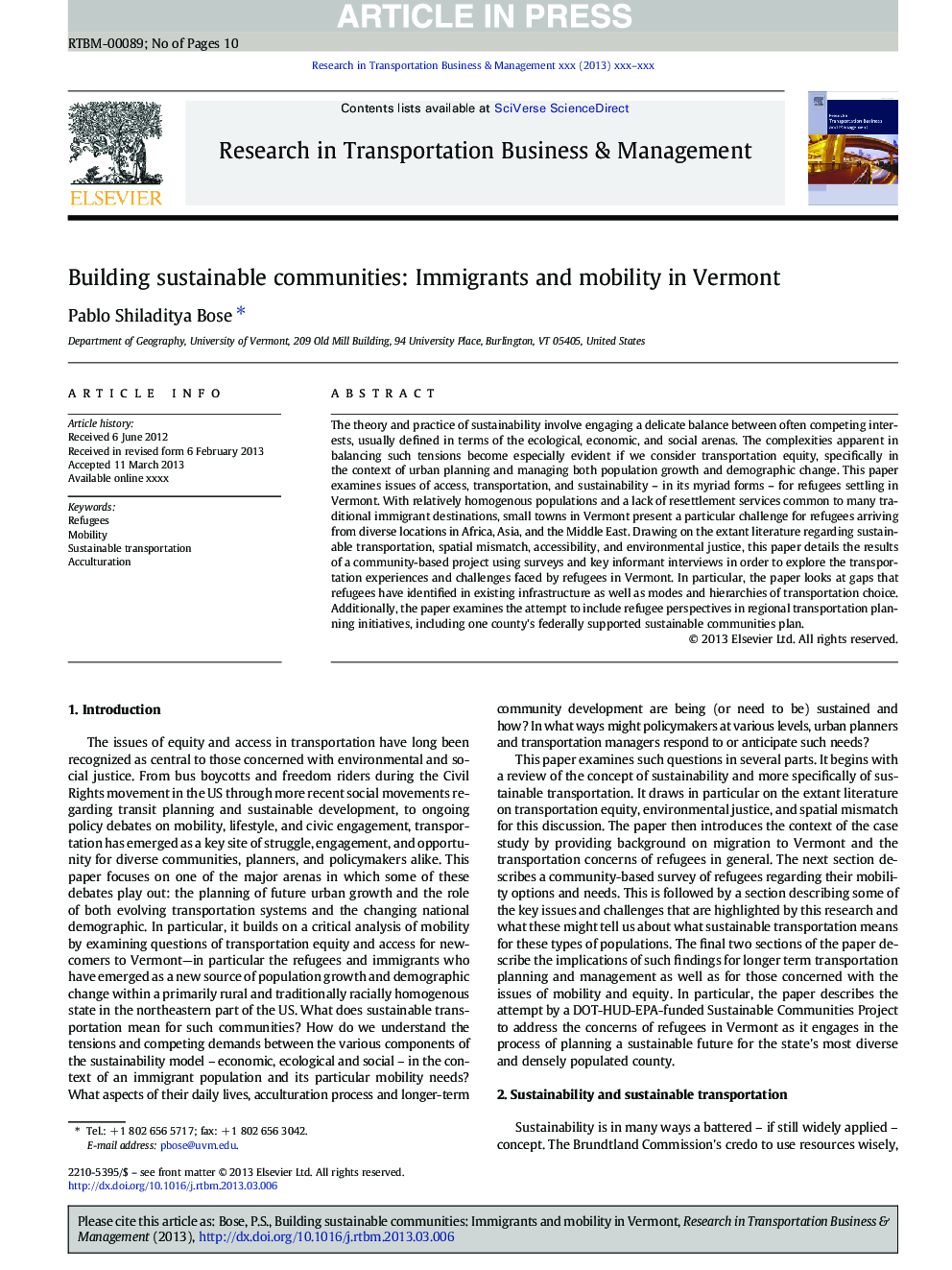| Article ID | Journal | Published Year | Pages | File Type |
|---|---|---|---|---|
| 7410550 | Research in Transportation Business & Management | 2013 | 10 Pages |
Abstract
The theory and practice of sustainability involve engaging a delicate balance between often competing interests, usually defined in terms of the ecological, economic, and social arenas. The complexities apparent in balancing such tensions become especially evident if we consider transportation equity, specifically in the context of urban planning and managing both population growth and demographic change. This paper examines issues of access, transportation, and sustainability - in its myriad forms - for refugees settling in Vermont. With relatively homogenous populations and a lack of resettlement services common to many traditional immigrant destinations, small towns in Vermont present a particular challenge for refugees arriving from diverse locations in Africa, Asia, and the Middle East. Drawing on the extant literature regarding sustainable transportation, spatial mismatch, accessibility, and environmental justice, this paper details the results of a community-based project using surveys and key informant interviews in order to explore the transportation experiences and challenges faced by refugees in Vermont. In particular, the paper looks at gaps that refugees have identified in existing infrastructure as well as modes and hierarchies of transportation choice. Additionally, the paper examines the attempt to include refugee perspectives in regional transportation planning initiatives, including one county's federally supported sustainable communities plan.
Related Topics
Social Sciences and Humanities
Business, Management and Accounting
Business and International Management
Authors
Pablo Shiladitya Bose,
